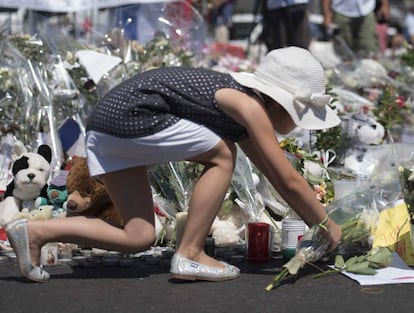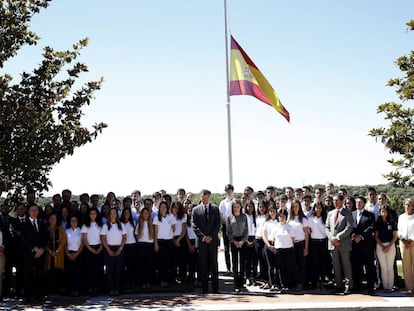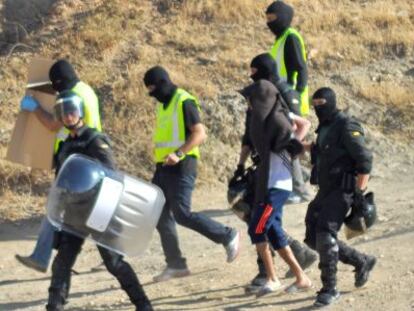Soldiers of faith
Their murderous enthusiasm is what sets jihadists apart from our own soldiers

In memory of José Ramón Recalde
One of the things that strike us the most about Muslim combatants fighting for the Islamic State is their suicidal nature. We (erroneously, in my view) believe them to have the desire to die in the act they plan to perpetrate.
There are many facts supporting this mistaken view, such as for instance the death of six terrorists involved in the Madrid commuter train bombings of March 11, 2004. The survivors of that commando committed collective suicide inside a Leganés apartment when they found themselves surrounded by the police.
But obviously, nobody can tell us whether they would have committed suicide anyway. It may have been that just one of them activated the bomb mechanism that took them all out of this world, without consulting with his accomplices. If they had fled all the way there, who is to say that they would not have continued to flee until they reached physical, if not spiritual salvation?
When they can, terrorists return home safe and sound without having to go through the bothersome formality of killing themselves.
Did the survivors of the Paris killings not flee to Belgium?
The one thing that is clear is that jihadist soldiers try above all not to be made prisoner. They have significant incentives for that, such as the promise of paradise, which will be filled not just with houris (beautiful virgins provided in the afterlife for faithful Muslims) but also with every other conceivable earthly pleasure.
Just like their former leader Bin Laden, terrorists who can do so return home safe and sound in order to enjoy their stay on earth without having to go through the bothersome formality of killing themselves. It remains a fact, however, that suicide is much more frequent among fundamentalist soldiers than among regular soldiers such as European ones.
In order to prepare their minds for the possibility of suicide as a “normal” way out, these individuals require significant psychological priming, which the mosques provide. A good imam offers the faithful troops an enormous amount of energy for the battle. That is why intelligence services are focusing much of their efforts on the religious hangouts of Muslims living in Europe. That should not sound so strange to us. In Spain, there is the not-so-far-off example of the Carlists (supporters of Don Carlos over Isabel II as heir to the Spanish throne) who used to mix religion and battle during the Civil War: “A Requeté who has received communion will attack a man” was a popular saying at the time.

So what distinguishes the Muslim soldier from the others is the fact that he is more enthusiastic about killing. He probably takes on greater risks than normal, but imbues his actions with a much greater homicidal impulse than, say, a police officer entrusted to defend democracy.
Otherwise, there are many elements that should allow us to identify the motives and feelings that move the jihadists. We can turn to a not-too-distant example: the international brigades that came to Spain to fight against fascism.
Many of those that came left comfortable lives behind. And they did it in exchange for nothing. Witnesses said that they were braver than anyone else in combat, honoring their condition as shock troops. Although they were not fighting for a religion, they were fighting for something almost as personally-significant; the vast majority of brigadiers were Communists who were laying their lives on the line for the future Stalin promised them. This is a simplification, but it comes very close to the truth.
On the other side, the most combative troops were those made up of Légionnaires and Moors, which in both cases were mercenary troops who were paid for killing.
So the jihadists who die too late, blowing themselves up with explosive belts after carrying out their murderous acts, are not much different from our own soldiers, except for their determination to kill. A soldier has to kill sometimes. A jihadist soldier has to kill as many infidels and unbelievers as possible.
Sign up for our newsletter
EL PAÍS English Edition has launched a weekly newsletter. Sign up today to receive a selection of our best stories in your inbox every Saturday morning. For full details about how to subscribe, click here.
And while we’re at it, just think about the “animals” who commit suicide after engaging in gender violence – nobody can say that they killed themselves for any faith.
At the core of this whole story, of this legend that the jihadists have carved out for themselves in the last few years, is this aura they are creating for themselves as courageous fighters who are somehow superior to our own humble freedom-fighting soldiers.
That is simply not so. And understanding that is one of the steps to defeating them.
English version by Susana Urra.










































